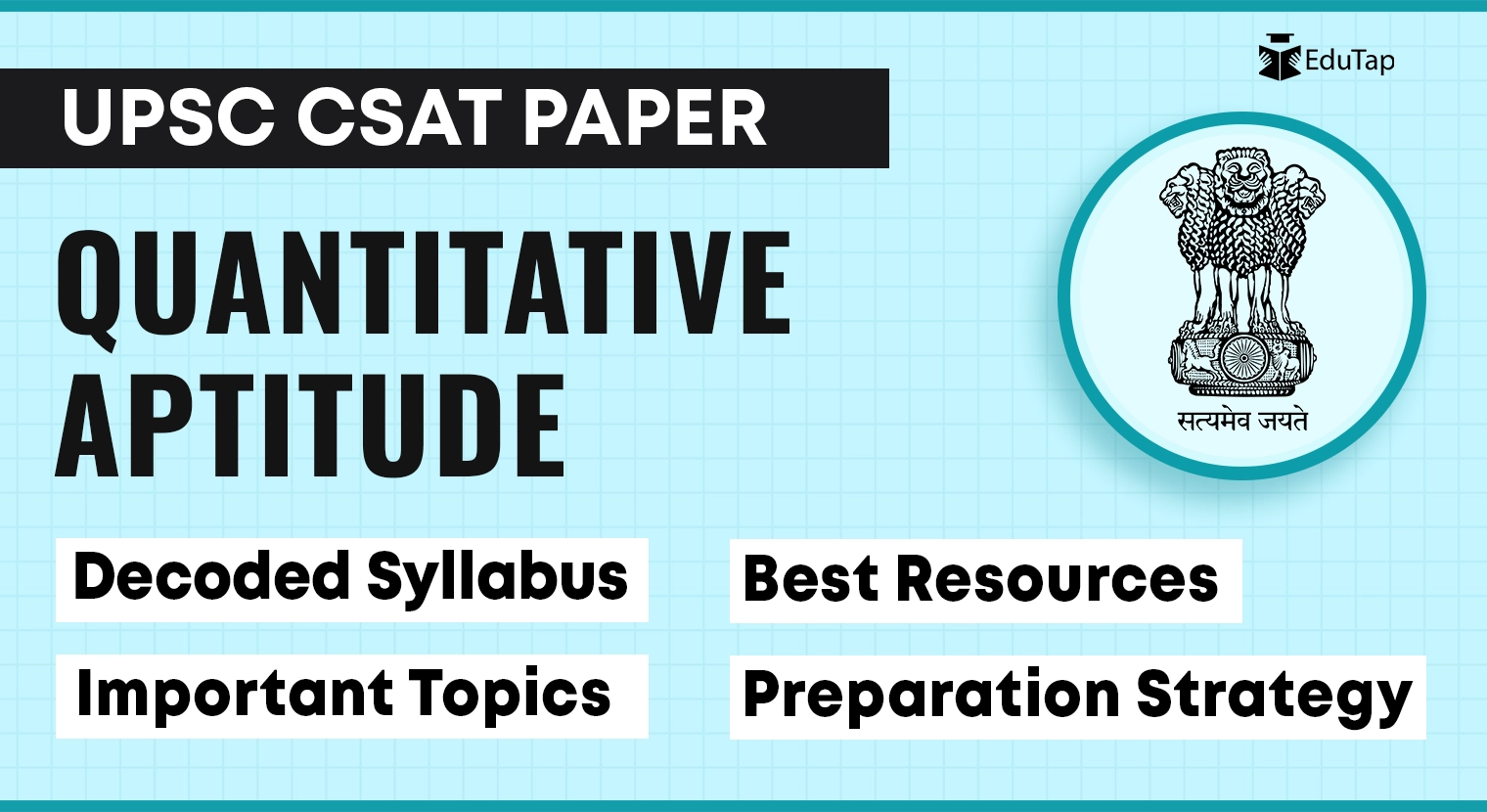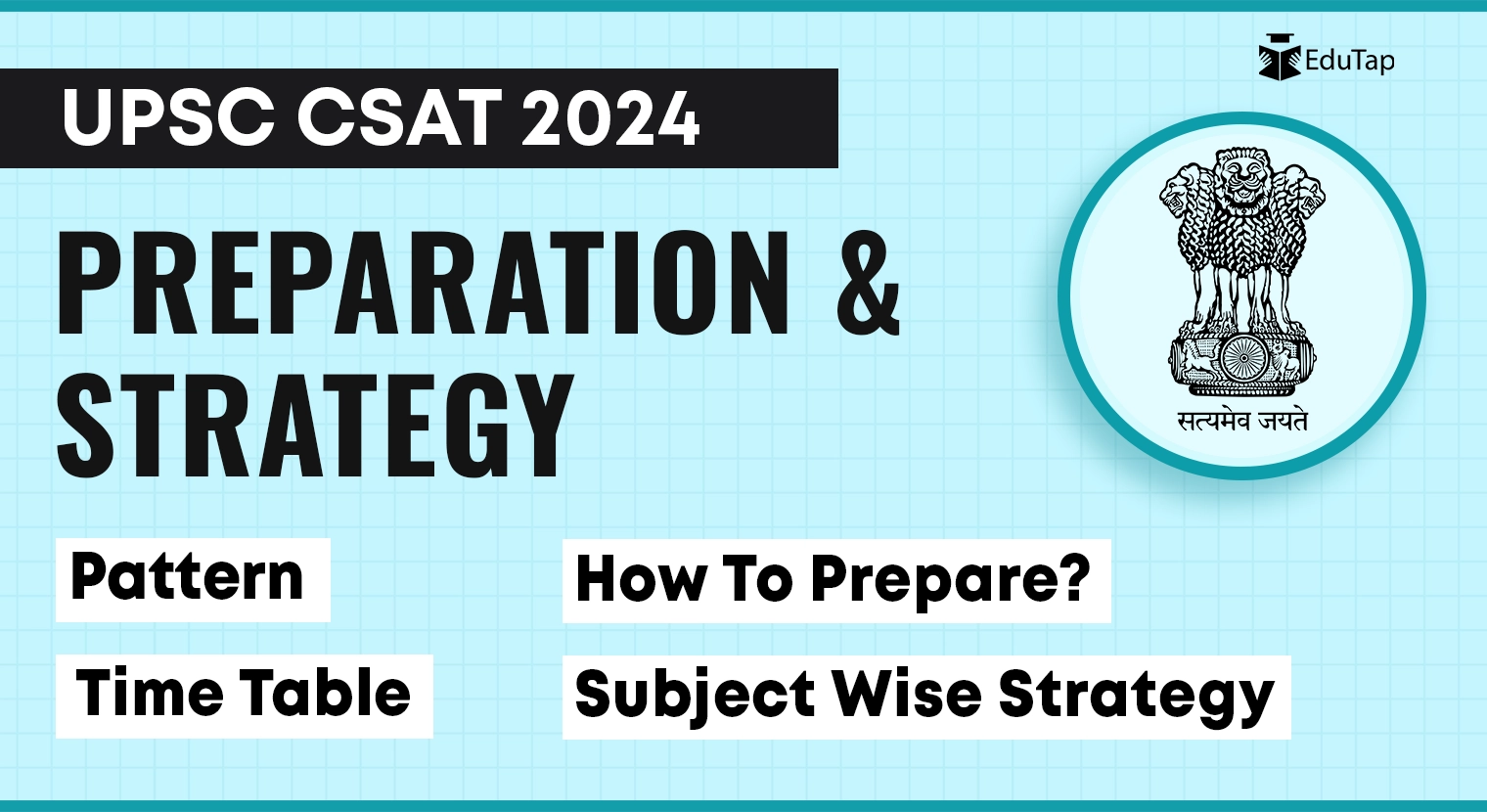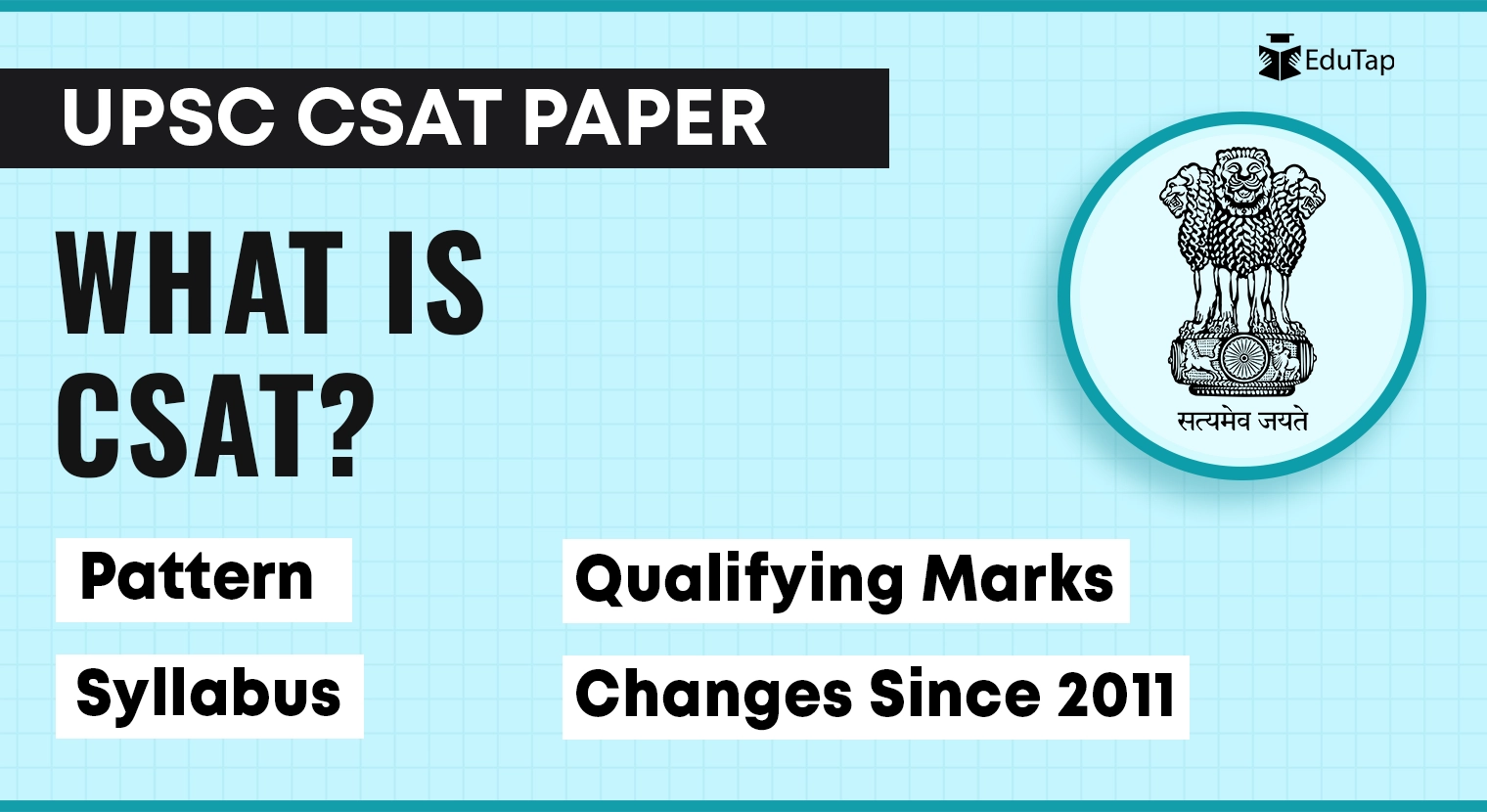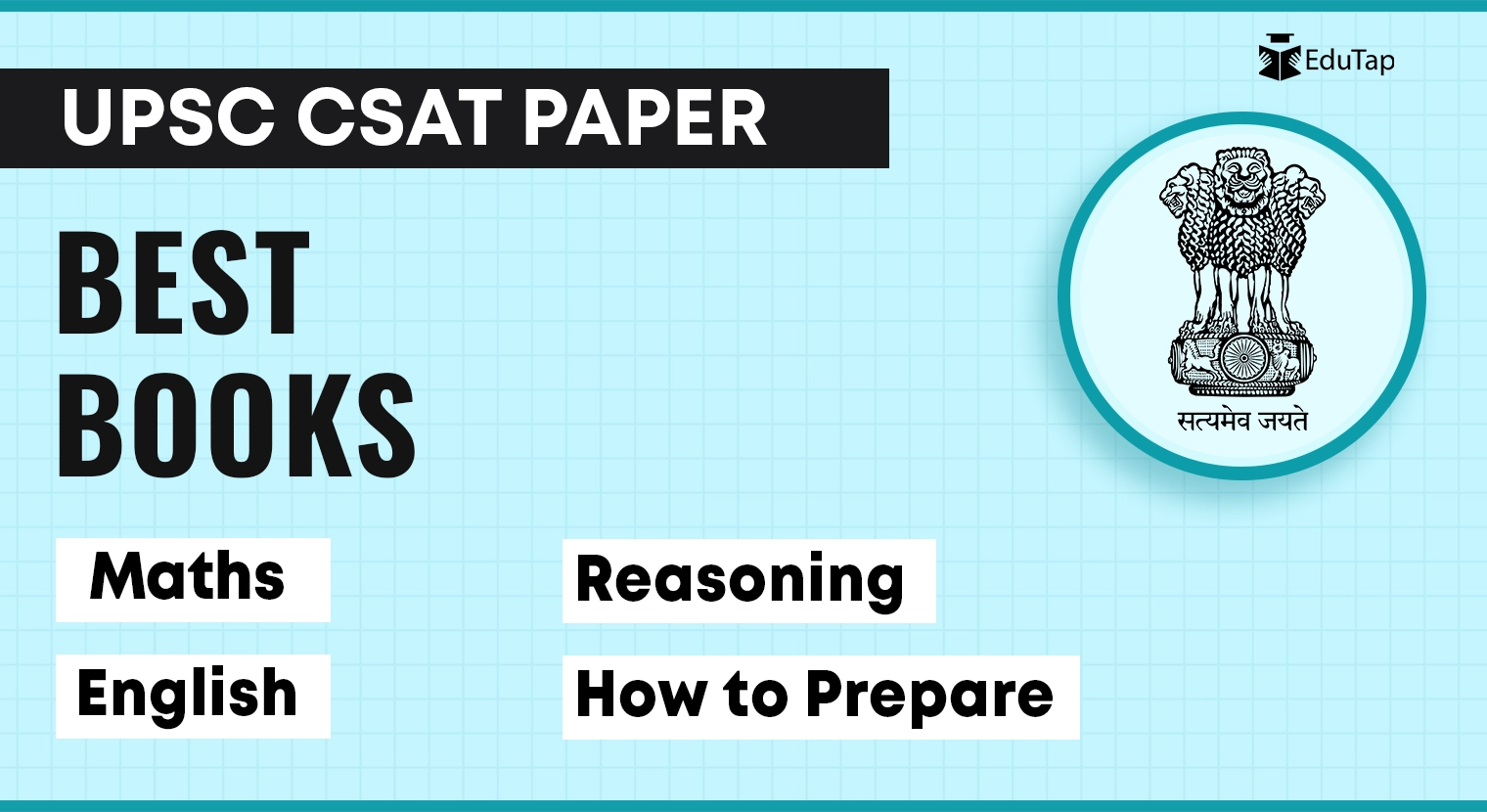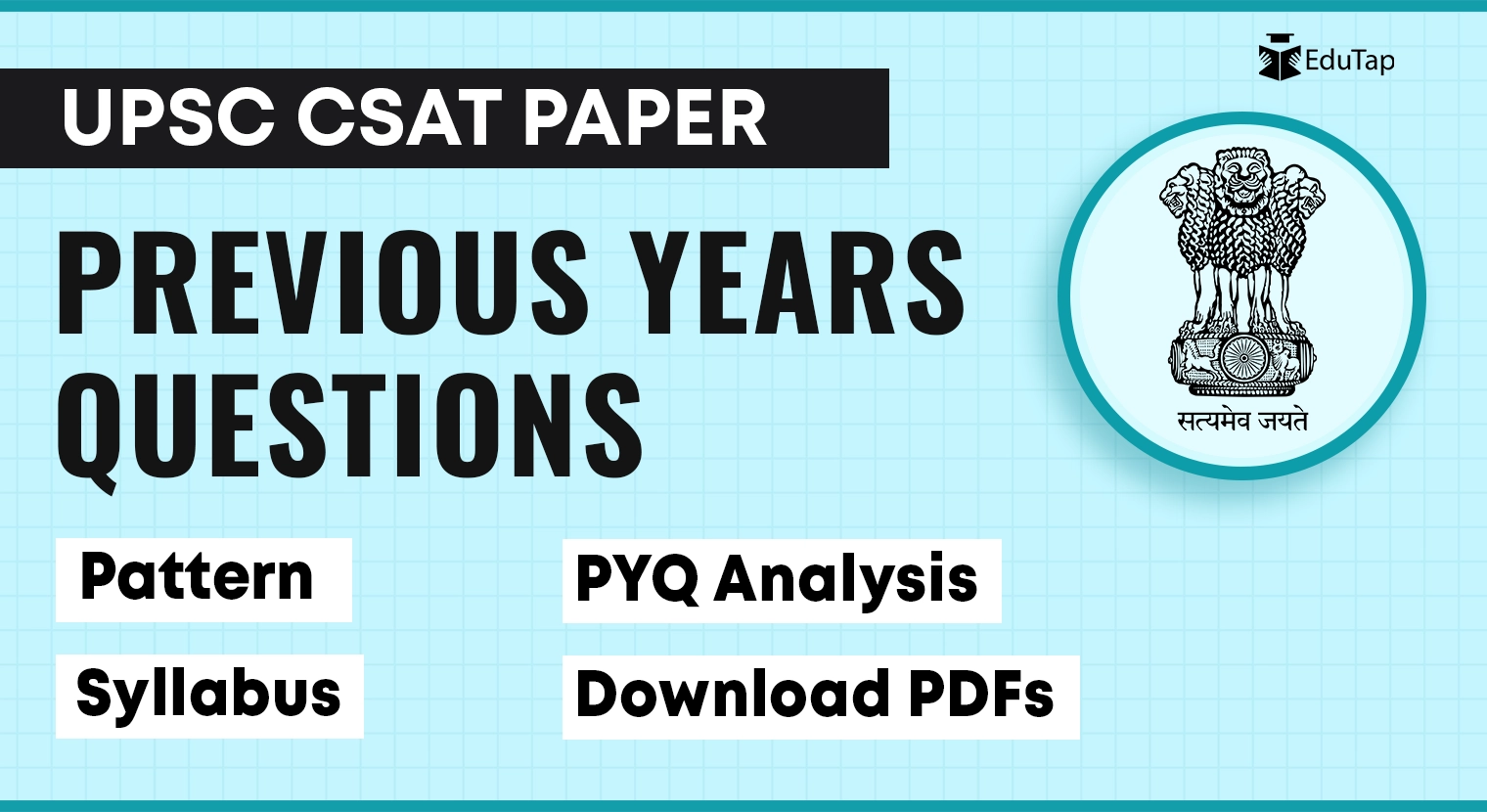Understanding the Maths syllabus is essential to prepare for the UPSC CSAT (Civil Services Aptitude Test). Besides the syllabus, it is crucial to analyse the previous years’ trends to identify the important topics and difficulty levels that will help you prepare for the UPSC CSAT paper.
In this article, we’ll explain the decoded UPSC CSAT Maths syllabus, PYQ analysis, important topics, difficulty level of the general mental ability section, and preparation strategy.
Before digging deep into the decoded UPSC CSAT Maths syllabus, let’s understand the official syllabus of UPSC CSAT.
UPSC CSAT Exam Syllabus
The official notification of the UPSC Civil Services Examination specifies the syllabus of the CSAT paper as follows:
- Comprehension
- Interpersonal skills, including communication skills
- Logical reasoning and analytical ability
- Decision-making and problem-solving
- General mental ability
- Basic numeracy (numbers and their relations, orders of magnitude, etc. (Class X level)
- Data interpretation (charts, graphs, tables, data sufficiency, etc. (Class X level)
The last three topics are for Maths. For your easy understanding, we have explained the Maths syllabus in the following table:
| Subject | Syllabus as per UPSC notification |
| Maths | General mental ability |
| Basic numeracy (numbers and their relations, orders of magnitude, etc. (Class X level) | |
| Data interpretation (charts, graphs, tables, data sufficiency, etc. (Class X level) |
This is an overall view of the UPSC CSAT Maths syllabus. Below, we have explained the decoded Maths syllabus of the CSAT paper.
Detailed Maths Syllabus for UPSC CSAT
We have decoded the CSAT maths syllabus and broken it down into manageable sections. Here is the detailed topic list of the maths syllabus for UPSC CSAT:
- Number System
- HCF and LCM
- Percentage
- Profit and Loss
- Simple Interest
- Compound Interest
- Ratio and Proportion
- Age and Partnership
- Data Interpretation
- Time and Work
- Pipes and Cistern
- Time, Speed, and Distance
- Boats and Stream
- Average
- Alligation and Mixture
- Mensuration 2D and 3D
- Permutation and Combination
- Probability
- Number Series
For the UPSC CSAT maths syllabus pdf, Download the UPSC CSAT Paper Comprehensive Guide.
Now that you have understood the decoded UPSC CSAT Maths syllabus, let’s take a look at the most important Maths topics.
Most Important Topics for CSAT Maths
We have carefully analysed the number of questions asked from each topic of Maths from 2014 to 2023 to identify the most important topics. But first, let’s take a look at the comparative analysis of the number of questions asked in the Maths section over the years.
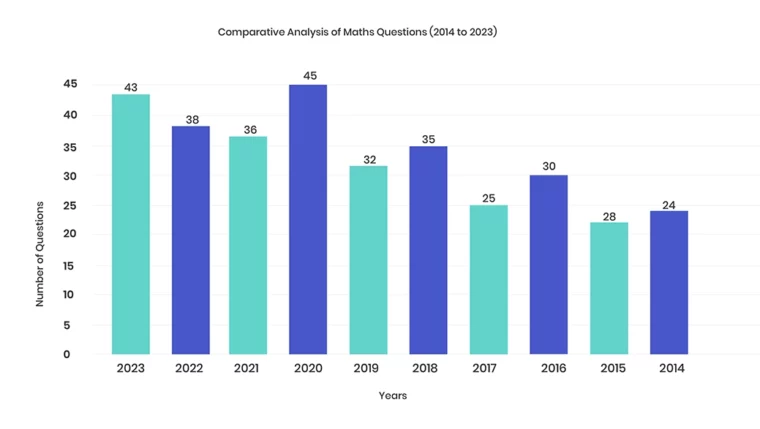
The above comparative analysis shows that the weightage of maths questions has steadily increased over the years. For, e.g., from 24 out of 80 questions in 2014, the number of questions asked from maths in 2023 went up to 43. This means that more than 50% of the paper comprises maths questions, and an aspirant must prepare accordingly.
Now let’s analyse the topic-wise distribution of Maths questions over these years.
Topic-Wise Distribution of Maths Questions
| Topic-Wise Distribution of Maths Questions (2014 to 2023) | ||||||||||
| Topic | 2023 | 2022 | 2021 | 2020 | 2019 | 2018 | 2017 | 2016 | 2015 | 2014 |
| Percentage | 1 | 4 | 7 | 2 | 9 | 2 | 3 | 3 | 6 | 6 |
| Ratio and Proportion | 0 | 1 | 4 | 2 | 2 | 0 | 3 | 4 | 6 | 3 |
| Profit and Loss | 0 | 1 | 1 | 2 | 3 | 3 | 1 | 1 | 0 | 1 |
| Compound Interest | 1 | 0 | 0 | 0 | 0 | 0 | 0 | 0 | 0 | 1 |
| Data Interpretation | 0 | 0 | 0 | 1 | 0 | 14 | 0 | 0 | 3 | 5 |
| Ages & Partnership | 1 | 1 | 1 | 0 | 2 | 0 | 1 | 1 | 1 | 0 |
| Time & Work | 1 | 1 | 1 | 1 | 0 | 0 | 1 | 2 | 0 | 0 |
| Time, Speed, and Distance | 0 | 2 | 1 | 2 | 1 | 3 | 2 | 3 | 2 | 3 |
| Pipes & Cistern | 0 | 0 | 1 | 0 | 0 | 0 | 0 | 0 | 1 | 0 |
| Boats & Stream | 0 | 0 | 0 | 1 | 0 | 0 | 0 | 1 | 0 | 0 |
| Probability | 1 | 0 | 0 | 0 | 0 | 1 | 2 | 1 | 0 | 0 |
| P&C | 11 | 7 | 3 | 3 | 2 | 2 | 3 | 1 | 6 | 1 |
| Alligation Mixture | 0 | 1 | 1 | 3 | 0 | 0 | 0 | 0 | 0 | 0 |
| Number System | 22 | 15 | 13 | 18 | 8 | 5 | 6 | 5 | 1 | 1 |
| Average | 0 | 1 | 3 | 3 | 2 | 0 | 3 | 2 | 0 | 0 |
| Mensuration 2D, 3D | 2 | 1 | 0 | 3 | 0 | 2 | 1 | 3 | 0 | 0 |
| HCF & LCM | 1 | 1 | 0 | 3 | 0 | 0 | 0 | 3 | 0 | 2 |
| Number Series | 2 | 2 | 3 | 1 | 3 | 4 | 0 | 0 | 2 | 1 |
| Total | 43 | 38 | 36 | 45 | 32 | 35 | 25 | 30 | 28 | 24 |
From the above analysis, the most important topics for CSAT maths that can be identified are as follows:
- Number System
- HCF and LCM
- Percentage
- Profit and Loss
- Ratio and Proportion
- Age and Partnership
- Time and Work
- Time, Speed, and Distance
- Average
- Mensuration 2D and 3D
- Permutation and Combination
- Probability
- Number Series
Now that you have understood the most important Maths topics for the UPSC CSAT, it’s time to identify the important resources for UPSC CSAT Maths preparation.
Best Resources for UPSC CSAT Maths Preparation
Here are the best resources for Maths:
Important Maths Books for UPSC CSAT
| Important Maths Books for UPSC CSAT | ||||
| SNo. | Books | Author | Publisher | Buy Here |
| 1 | Quantitative Aptitude for Competitive Examinations | R.S. Agarwal | Oswal Publishers | Buy Online |
| 2 | Fast Track Objective Arithmetic by Rajesh Verma | Rajesh Verma | Arihant Publications | Buy Online |
Other Important Books
NCERT Mathematics Textbooks (Class 8th, 9th, and 10th). These books can not only help you understand the basic concepts but also strengthen your foundational knowledge of mathematics.
FREE Videos
YouTube Videos (These are free video tutorials on maths topics, providing visual explanations and additional practice.)
Practice Questions
Here, you can download the Previous years’ questions to practise Math’s questions.
Online Course
EduTap Comprehensive Course (Enrolling yourself in an online course helps you get structured study materials, video lectures, and practice tests. You’ll also get guidance from experienced educators and subject matter experts.)
Click here to find the best resources to prepare for the UPSC CSAT in detail.
Now that you have the important topics and resources to prepare those topics from, it’s time to learn how to prepare for the UPSC CSAT Maths.
Strategy to Prepare for UPSC CSAT Maths
Follow the below-mentioned strategy to prepare for UPSC CSAT maths:
1. Understand the UPSC CSAT Maths Syllabus
Start by thoroughly understanding the UPSC CSAT Maths syllabus and also familiarise yourself with the exam pattern.
2. Collect Study Materials
Gather quality study materials, including books, practice papers, video lectures, and other resources covering the UPSC CSAT Maths syllabus.
3. Evaluate Yourself
Attempt at least two sections of Maths questions from the previous years’ question papers. Analyse your performance in order to understand where you stand.
4. Start with the Basics
After assessing your current level of understanding, it’s advisable to start with the basics of Maths, especially if you find mathematics challenging. Ensure you understand fundamental concepts to build a strong foundation for more complex topics.
Important note: You can skip this step if you have a strong hold of the subject.
5. Learn Tricks and Shortcuts
Learn time-saving techniques, shortcuts, and tricks for solving mathematical problems. These can help you save time as there is limited time in the CSAT.
6. Focus on Important Topics Only
The time is limited for UPSC CSAT aspirants, as they also need to prepare for general studies, optional, and current affairs. So, you can save time by focusing on the above-mentioned most important topics.
7. Practice Regularly
Maths requires practice. Regularly practise from your study materials and focus on solving various problem types to develop a broad skill set.
8. Attempt Mock Tests
Take multiple mock tests to simulate the actual exam environment. Time box yourself while taking these tests to improve your time management skills.
9. Review and Analyse
The prime purpose of practice is to review your answers and identify your mistakes. Moreover, understanding your errors will help you avoid them in the actual exam.
10. Seek Guidance
Consider joining reputable coaching institutes or online courses for expert guidance.
By following the above-mentioned tips, you can have a strong hold on maths even if you are from a non-maths background.
For more detail, read the article “How to Prepare for UPSC CSAT”
Conclusion
The UPSC CSAT Maths syllabus can be challenging for some aspirants from non-Maths backgrounds. However, with a systematic approach and regular practice, candidates can master multiple mathematical concepts and topics. It’s crucial to begin with a strong foundation and gradually progress to more complex areas.
FAQs
If you have a weak Maths background, start with the basics and gradually progress to more complex topics. Also, seek help from reliable study materials and practice regularly to build your maths skills.
The difficulty level of the UPSC CSAT Maths is moderate. It tests your ability to solve mathematical problems but does not require highly advanced mathematical knowledge.
In the 2023 CSAT exam, there were a total of 43 Math questions. These were also categorised into 8 easy questions, 21 questions of moderate difficulty, and 14 questions of a more challenging nature. So, the overall difficulty level of Maths is moderate.
In the 2023 CSAT exam, there were 43 Math questions out of a total of 80 questions. Each Math question carried 2.5 marks. Therefore, the Maths section accounted for 107.5 marks out of 200 marks, which is more than 50% of the total marks available.
It can vary significantly from candidate to candidate based on their prior knowledge, learning pace, and study routine. However, as a general guideline, it might take 3-4 months of consistent and focused study to cover the entire UPSC CSAT Math syllabus effectively. Remember that it’s essential to adapt the study timeline to your strengths and weaknesses while ensuring comprehensive coverage of the syllabus.
